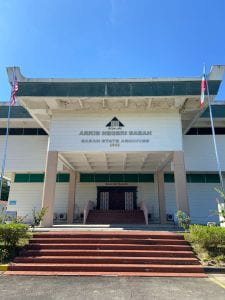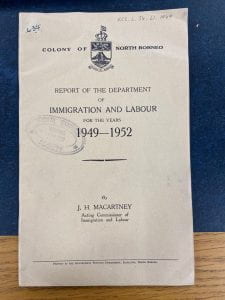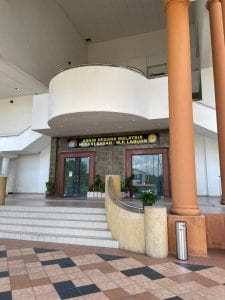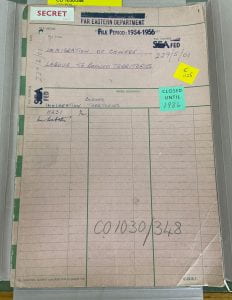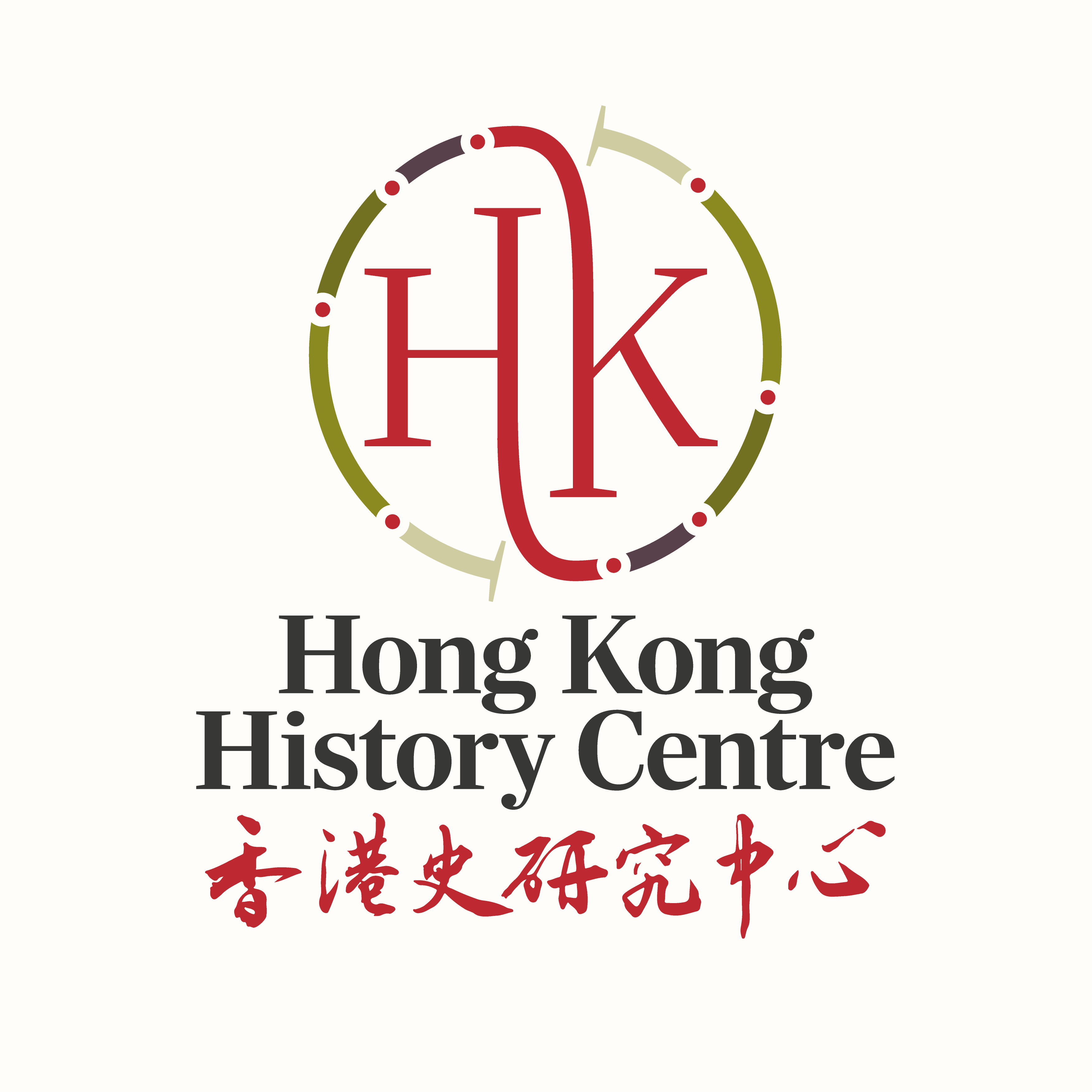One of the Centre’s mission is to nurture a new generation of Hong Kong historians.
A Early Career Scholar Network was created under the Hong Kong History Centre in June 2023. It intends to help create a community of Hong Kong historians and offer a platform for face-to-face interaction and academic exchange among young scholars. Research students and fresh doctoral graduates working on socioeconomic, political and cultural history of Hong Kong and its global relevance are welcomed. We usually meet thrice a year (February, June and October) with participants taking turn to present their works in each meeting. Financial support is provided for attending these sessions.
Please write to Prof. Ray Yep, Research Director of Hong Kong History Centre, at rekmy@bristol.ac.uk, if you are interested in joining this Network.
——
In this post, we would like to introduce Doris Chan, a member of the Network.
Doris Chan is a PhD Candidate in Nanyang Technological University. In the note written by her below, she shares with us her reflections on her academic journey and current project on ‘Controlling Mobility: Post-WWII British Empire and the Chinese Population, c. 1945-1963’, focuses on the Chinese skilled and professional migration between Hong Kong, Singapore and North Borneo.
****
I used to be more interested in modern Chinese and European histories in my undergraduate years and loved to read Cold War diplomatic history. However, my research interests began to change when I relocated to the UK for my master’s degree in 2020. While I was excited to live in a new environment and continue to pursue my research interest, the feeling of being a minority and alienated in the community during the pandemic was immense. My very distant tie with the new home had thus prompted me to start wondering about my and my family’s past and present (dis-)connections with this foreign land. I wondered why my grandparents and parents decided to settle and stay in Hong Kong but not elsewhere when many of their generations at different points would have considered emigration. How did the broader development of immigration control and geopolitics restrict their mobility? I began to read more about Hong Kong history, migration history, colonial history, etc. My MA thesis, therefore, revisited the influx of Chinese immigrants from China to Hong Kong after the Second World War. I asked: how did the Hong Kong and London governments manage the immigration crisis on an imperial level? How did they attempt to channel the immigrants to other parts of the empire? I looked into the case of North Borneo (today’s state of Sabah in East Malaysia) and the UK and how these two spaces emerged as potential resettlement destinations for Chinese in Hong Kong.
That was my first time working on Hong Kong, Southeast Asian and colonial histories. I was deeply fascinated by the strong historical connections between Hong Kong and the region, besides the long-studied comparison of Hong Kong and Singapore, the so-called ‘a tale of two cities’. I decided to work further in this direction. My PhD thesis, tentatively titled ‘Controlling Mobility: Post-WWII British Empire and the Chinese Population, c. 1945-1963’, focuses on the Chinese skilled and professional migration between Hong Kong, Singapore and North Borneo. Chinese migration after the war was significantly scaled down due to strict colonial immigration regulations in the region. However, a smaller scale of temporary and permanent migration was still possible due to developmental plans and the shortage for various types of labourers. Besides exploring and comparing the official arrangements of skilled labour and professional migration, I also examine the coordination and tensions between the colonial governments in formulating immigration policies and implementing controls over the Chinese population in this period, when each territory faced different economic, social, political and security concerns. Last but not least, I seek to study the transfers of information and knowledge between colonial officials in Hong Kong, Southeast Asia and the UK regarding their (re-)understanding of the Chinese population residing outside China after the war.
Predominantly, I use primary materials from government archives in Hong Kong, Singapore, Malaysia and the UK. I study government correspondences and reports to understand how policies were negotiated and decisions were made regionally and how authorities tried to take unified actions to respond to the ‘Chinese problem’. As labour migration was also closely related to the economic development of a territory, I use company files to understand the responses from British businesses towards the changing local labour supply and the changing immigration and labour regulations in the region. I also rely on Chinese- and English-language newspapers circulated in Hong Kong, Singapore and North Borneo, to look into how people perceived and received information and knowledge of, and available working and economic opportunities in, different British colonies in the region. These materials help to understand the intra-empire control of immigration and connections in the age of decolonization. I hope this research will contribute to not only understanding Chinese migration after the Second World War but also the connections between Hong Kong and other parts of the British Empire.
****
在就讀大學本科期間,我一直對現代中國和歐洲史較感興趣,也很喜歡閱讀有關冷戰史的著作。2020年,我到英國修讀碩士學位。本來我是十分期待在一個新環境生活並繼續我的研究,但人在異鄉難免有一種疏離的感覺,而正直疫情期間更加劇了這一種孤立感。在我父母及其上一輩有許多人都會考慮移民,正因為我與新「家」的疏遠關係,我開始反思過去和現在我(以及我的家庭)與這片陌生國度的關係。我想知道為何他們會選擇在香港落地生根,到底歷史上的移民政策和地緣政治又如何影響他們的流動性(mobility)和決擇?我開始閱讀香港史、移民史、殖民史等的書籍。在我的碩士論文中,我重新探討二次世界大戰後由中國到香港的移民歷史:當時殖民政府是如何從帝國層面上應對移民危機?香港和英國政府是怎樣將移民從香港輸出到英殖帝國的其他角落?我集中討論英屬北婆羅州(British North Borneo)——即今天馬來西亞的沙巴州——和英國,並探討兩地如何逐步成為香港移民的潛在目的地。
這是我第一次研究香港、東南亞和殖民史。除了大家耳熟能詳的「雙城記」——香港和新加坡的比較之外,我對歷史上香港和東南亞之間的深厚聯繫感到著迷,因此決定繼續向這個方向研究。我的博士論文暫命題為「操控流動:二次世界大戰後英殖帝國與華人(1945-1963)」(Controlling Mobility: Post-WWII British Empire and the Chinese Population, c. 1945-1963),集中研究香港、新加坡和北婆羅州三地熟練勞工和專業人士的移民歷史。華人移民潮在二戰後大幅減少,但因為戰後世界各地都加速發展經濟,導致熟練勞工和專業人士出現短缺,所以在此期間仍有一少部分短期和永久移民的例子。研究課題中我會首先探索和比較政府處理熟練勞工和專業人士移民的手法,再探討面對不同的經濟、社會、政治、國家安全的情況下,三地殖民政府在推出移民政策及控制華人措施時所作出的協調和面對的衝突。最後,我會分析在移民政策收緊後,三地政府以及英國官員之間對居住在中國以外的華人群體的新認知,以及新認知的知識轉移(transfer of knowledge)。
我主要利用香港、新加坡、馬來西亞和英國的政府檔案。其中,官員之間的通訊和報告都有助理解制定政策時的談判過程和決定,以及三地政府在面對所謂「華人問題」時如何達成或嘗試達成一致的行動和回應。亦因為勞工移民對每個地方的經濟發展息息相關,我也會運用一些公司檔案去理解英資商人如何回應當時多變的勞工供應及勞工和移民條例。我也依靠當時在香港、新加坡和北婆羅州流通的中、英文報紙,去探索三地人們是如何接收、認識其他殖民地的資訊,各地的經濟及就業機會。這些資料能幫助了解英殖帝國內部的移民控制,和去殖化期間帝國內部的聯繫。我希望這項研究可以進一步了解二戰後華人移民的歷史,以及了解除了新加坡之外,香港和位於亞洲的英屬殖民地的關係。




